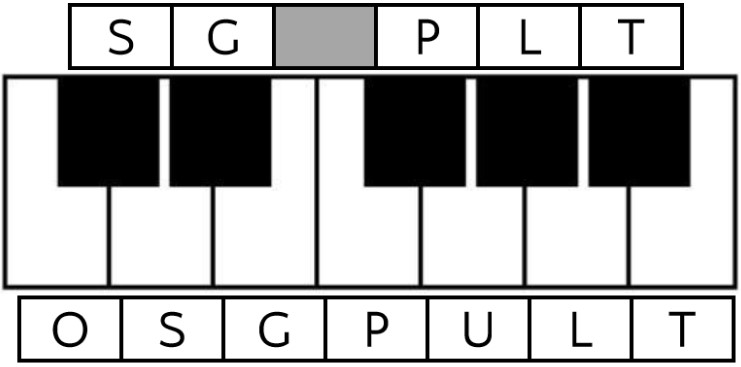Pelog Salendro 10 Tones TBN
This preset contains the combined pelog and salendro scales. These are the two tunings that ensemble instruments are tuned to in a Sundanese Gamelan Pelog Salendro. In traditional Sundanese music repertoire, though a Gamelan Pelog Salendro has instruments tuned in both tunings, the two are never used simultaneously, except for being used interchangeably in cases of modulation.
Salendro is a pentatonic scale with note names: S (Singgul)-G (Galimer)-P (Panelu)-L (Loloran)-T (Tugu) while Pelog is septatonic scale with note names: S (Singgul)-G (Galimer)-P (Panelu)-U (Bungur)-L (Loloran)-T (Tugu)-O (Sorog). Similar to how Pelog and Salendro are not played at the same time, Pelog is usually played using only one of three pentatonic subsets, Jawar, Liwung, or Sorog, at a time but can modulate between the three.
While there are seven Pelog notes and five Salendro notes, since the two tunings have two tones in common, L=Loloran in Salendro is tuned the same as U=Bungur in Pelog and Tugu is the also the same in both tunings (Tumbuk Nem), the total number of unique Pelog and Salendro tones is 10 (Gunawan, Milyartini and Masunah, 2022). See A Guide to Sundanese Gamelan Tuning for more information.
The Ableton tuning library includes examples based on recordings from two Pelog Salendro gamelans. This preset is based on one of them, a to-be-named Gamelan Pelog Salendro (TBN) from Universitas Pendidikan Indonesia tuned in a Javanese style with Tugu=472Hz. Within the preset, we use two letters to denote each note- the first letter designates whether the note comes from Salendro (S) or Pelog (P), and the second letter designates the note within the respective scale (see earlier).
This preset is, by default, organised both for easy layout, and also so that notes within the gamelan match the closest equivalent note in a Western 12 note equal tempered tuning. If played using Live with a MIDI piano controller and the default MIDI Controller Layout, "All Keys", each note is arranged so that the black piano keys represent the five notes of the Salendro scale: S-G-P-L-T (Db-Eb-Gb-Ab-Bb), and the white keys represent the seven notes of the Pelog scale: S-G-P-U-L-T-O (D-E-F-G-A-B-C). Here is an example of note placement on a piano keyboard.

Figure 1. The default layout of the Pelog Salendro TBN preset onto one octave of a piano keyboard. Salendro notes map to the black keys, while Pelog notes map to the white keys.
The tonal approach of linking Gamelan Pelog Salendro TBN's notes with the nearest 12TET notes is particularly useful when composing contemporary gamelan works using this tuning in combination with Western instruments. For example, Dieter Mack's The Time After-Reset (2022) uses Pelog Salendro gamelan or you can hear the simultaneous Pelog Salendro mix on the Grain Gamelan album.
With the complete Pelog and Salendro scales, we can play the four traditional pentatonic scales of Salendro, Jawar, Liwung and Sorog.
References
Gunawan, I., Milyartini, R. and Masunah, J. (2022) ‘The Use of Laras in Contemporary Gamelan Music’, Harmonia: Journal of Arts Research and Education, 22(1), pp. 161–173.